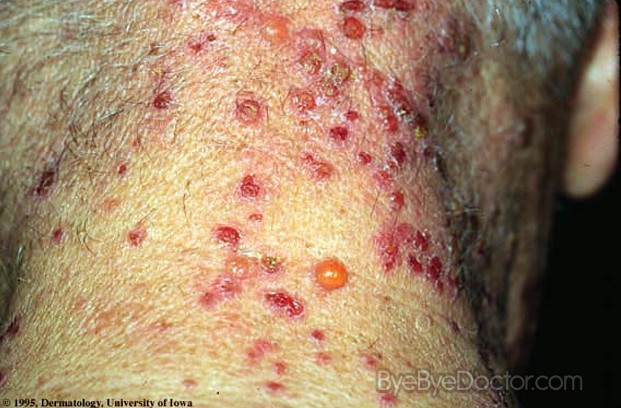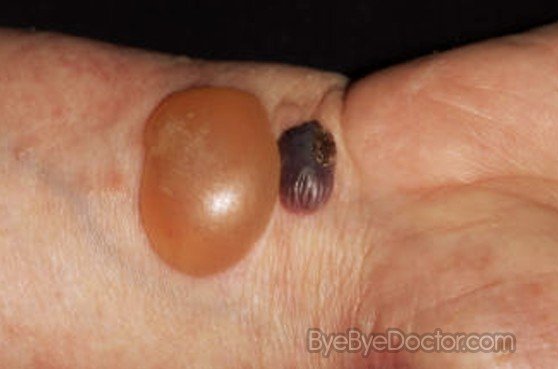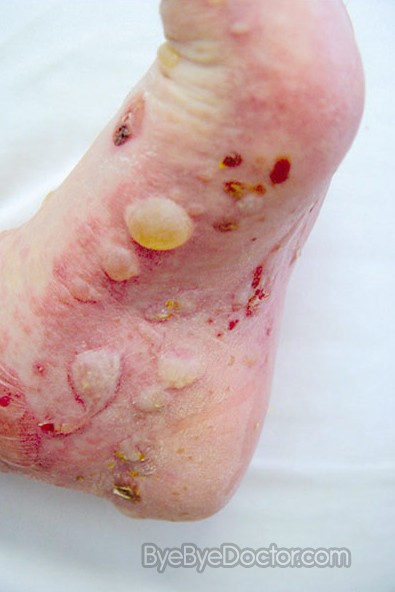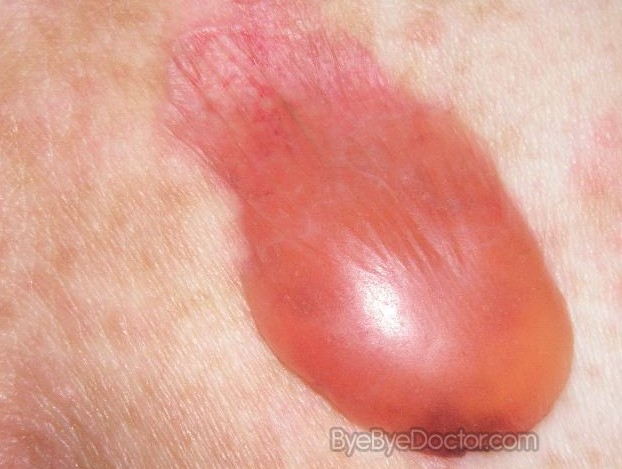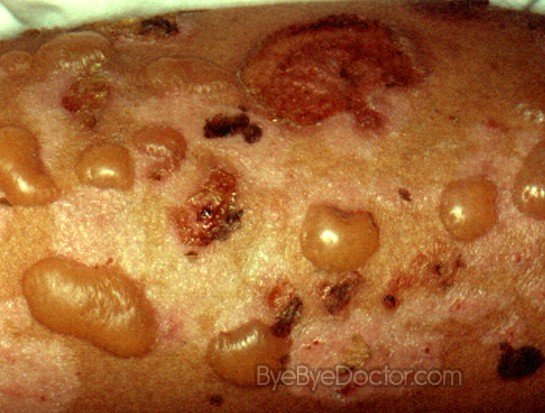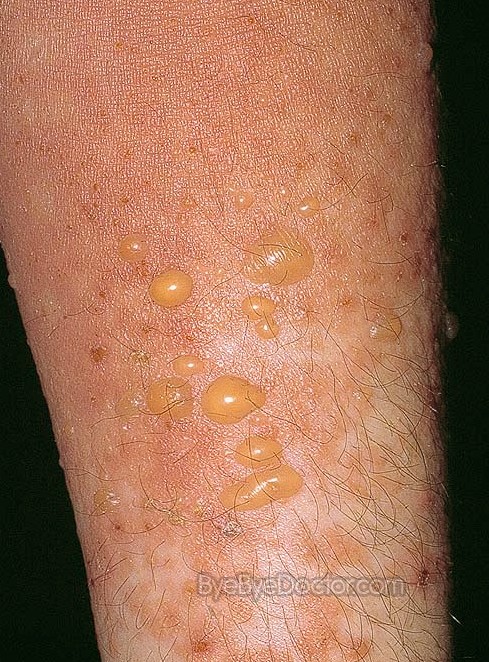What is Bullous Pemphigoid?
This is a persistent, rare skin problem which normally appears as fluid-filled, large blisters in the skin. While anyone may have this condition it mostly affects adults who are older.
Bullous pemphigoid develops when the body’s system of immunity starts an attack on the thin-layer of tissue just below the layer of the skin which is outmost. The cause of this atypical immune system response is not known.
Medications which curb the system of immunity abnormalities of bullous pemphigoid help improve symptoms, but the individual taking these drugs need close monitoring for severe side effects. This condition is very seldom grave, with the exception of when it affects older individuals who many are already in bad health or individuals who have poorly functioning systems of immunity.
Bullous Pemphigoid Symptoms
The main factor of this condition is the development of blisters. Characters of these blisters consist of the below:
- Blisters are fluid filled, very large and do not rupture easily when touched
- The fluid in blisters is normally clear but can have some blood
- The skin surrounding the blisters can look normal, reddish in individuals with light colored skin or darker than usual in individuals with dark color skin.
- The blisters may emerge everyplace on the body but most often are on the groin, abdomen, arms as well as inner thighs. Blisters normally located along folds or creases in the skin, for example the skin on the inside of a joint.
- Ruptured blisters can be sensitive or painful.
Others symptoms can include:
- Hives - Red, raised or dark areas of skin which are swollen (hives) can occur before the blisters occur. In many cases, hives often are the only lesion of the skin to occur.
- Itching – The area which is affected is normally extremely itchy.
- Mouth sores – Individuals can develop sore or blisters in the mouth as well as seldom on other mucous membranes.
Bullous Pemphigoid Causes
What causes this skin problem is not very well understood. These skin irritations as well as blisters of the skin happen because of some malfunction of the system of immunity.
The body’s system of immunity usually creates antibodies which fight viruses, bacteria or any other harmful foreign invaders. Because of reasons which are not certain, the body can grow an antibody to a tissue in the body.
With this specific skin condition, the system of immunity develops antibodies to the basement membrane of the skin, which is thin-layer of fibers linking the outer-layer of skin and the next layer of skin – the dermis and epidermis. The antibodies start inflammatory activity which produces the hives, blisters as well as the itching characteristic of bullous pemphigoid.
Bullous pemphigoid normally appears very erratically with no factors which are clear causative to the beginning of this disease. A tiny proportion of cases can be started by certain therapies, for instant:
http://www.Symptoms-Causes-treatment.blogspot.com detect diseases at an early stage symptoms, and find out the causes and treatments best suited.
- Prescription drugs for treating rheumatoid arthritis or the retention of fluid
- Ultraviolet light treatment used for treating certain conditions of the skin or disorders which are inflammatory.
- Radiation therapy used for the treating of cancer
Bullous Pemphigoid Treatment
The main goals of treatment for this skin condition are to aid the skin to heal as rapidly as feasible as well as alleviate itching. Your primary care physician will usually order a blend of medications which inhibit the system of immunity activities which causes inflammation.
Most individuals experience symptoms improving in several weeks but continuing therapy is normally needed for numerous years.
Corticosteroids taken orally as a pill are the prime management for this condition, especially at the start of a therapy regimen. Some individuals can also use a corticosteroid ointment which is topical and is applied on the affected area of the skin. The side effects can diverge depending on whether the individual is taking topical or oral treatment.
- Topical side effects – Long-term use of corticosteroids topical can cause the thinning of the skin as well as other skin problems.
- Oral side effects – Continuing use of corticosteroids which is oral may cause weakening of bones known as osteoporosis, high blood pressure, diabetes, cataracts as well as further severe side effects.
After the skin heals, the primary care physician will need to gradually reduce the dosage to the lowest level needed to keep this condition under control as well as keep the danger of side effects under control.
Immunosuppressants are medications which inhibit the body’s production of white blood cells. This type of medication can be used together with corticosteroids to lessen the hazards of corticosteroid therapy. They can as well be used by themselves, but relief of symptoms may take longer to accomplish.
The side effects of these types of medications contain an enlarged risk of infections. Immunosuppressants which are used as a therapy for this condition include:
- Mycophenolate mofetil – CellCept
- Azathioprine – Imuran
Other drugs which are anti-inflammatory can be used by themselves or in grouping with corticosteroids are:
- Methotrexate (Trexall) which is a drug used often as treatment for other skin disease with inflammation as well as rheumatoid arthritis.
- Tetracycline which is an antibiotic with properties for anti-inflammation
- Nicotinamide which is a derivative of B vitamin when taken together with tetracycline
- Dapsone (Aczone) and sulfapyridine which is a mixture of drugs with anti-inflammatory and antibiotic properties
Bullous Pemphigoid Pictures

